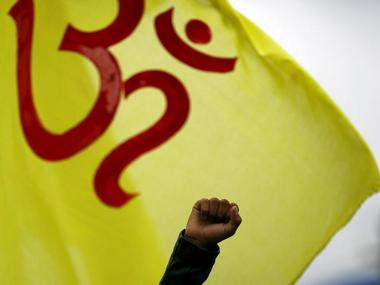It is good that the Supreme Court has asked why there is no mechanism to protect minority rights in Jammu and Kashmir. Minorities everywhere must be protected. That is the mark of a civilized society. However, a question mark has been looming large on the meaning of minority in this state. Muslims are the major minority group in the overall context of India but at 63 percent, they comprise the majority of the state’s population. On this basis, the petition that has raised the issue in the Supreme Court argues that Hindus are the major minority in the state. On the face of it, this is true. But this is an inadequate model. For, this is the most sociologically complex place in the world — even more than the Balkans. So, the meaning and content of the term `minority’ changes from place to place. [caption id=“attachment_2941062” align=“alignleft” width=“380”] Representational image. Reuters[/caption] Sociological complexity In Poonchh, for example, Sikhs and Hindus are religious minorities. In Doda, only Hindus are. In the tiny valley of Bani, Gaddis, Sippis and Muslims can all claim to be minorities. How their rights are to be protected can sometimes be a complex challenge. While Gaddis are classed as a scheduled tribe, many Gaddi residents claim to be Rajput Hindus. In Jammu, and places like Samba and Chinaini, Muslims are the major minority. But, among Jammu-based Muslims, those who call themselves Dogra Muslims, Gujjar Muslims, and Kashmiri Muslims do not necessarily see themselves as belonging to the same community. They do not generally inter-marry, and their language and food habits differ. In Leh district, Muslims are the minority religious group. However, even among Muslims, local Sunni leaders argue that they are a minority within a minority, since they generally do not inter-marry with the more numerous local Shia. A large number of local Sunnis of Leh district are `Argon’ - descended from Kashmiris who migrated centuries ago but have married local women for generations. Buddhists are the major minority group in most parts of Kargil district, but Muslims are the minority in the Zanskar Valley. The four Sikh and one Hindu family in Kargil are minorities too. And Sunni residents of Kargil town with Kashmiri origins are generally known as Khache, and not treated as integral to the locally dominant community. In the Kashmir Valley, Sikhs and Hindus are the notable religious minorities. In linguistic-ethnic terms, Gujjars and Pahadis too are important minority groups. Gujjars are the major minority in the Pahadi-dominated Karnah area of Kupwara district — both communities being Muslim. Plus, there is a substantial number of Sikhs too in some pockets of Karnah. Urgent need to unite In light of the extraordinary sociological complexity of this state, a commission to protect minority rights must look into protecting the rights of the various peoples who comprise minority communities in different parts of the state. The institution must be a peacemaker so that all may see it as a defender of their safety, rights, and dignity. The state already has a commission for scheduled tribes, which tends to see itself as the vehicle for the promotion of Gujjars’ interests. This objective has succeeded well over the past 40 years, but has had a reductionist impact on the multi-cultural nature of the state, particularly in the Rajouri and Poonchh districts, where several ethnic-linguistic and religious groups that used to celebrate their unique differences now try to define themselves as Pahadi — to push collectively for the extension of reservations to this category. A mechanism to protect minority rights is very important but it must be based on a broad vision. It must not lead to the further squeezing of space to celebrate multiple identities and cultures. The state has already been pushed into a Muslim versus Hindu binary, more so through the vigorous production and spread of rival narratives over the past decade. This process got a huge fillip after the transfer of land to the Sri Amarnath Shrine Board in 2008. The agitations which followed were extremely divisive. A minorities commission should seek to bind back the bonds of amity.
A mechanism to protect minority rights is very important in Kashmir but it must be based on a broad vision. It must not lead to the further squeezing of space to celebrate multiple identities and cultures.
David Devadas is an expert on politics and geopolitics. Formerly a Senior Fellow at the Nehru Memorial Museum and Library, Visiting Professor at Jamia Millia Islamia, and Political Editor of Business Standard, he is currently Distinguished Fellow at the Institute for Social Sciences. He has written books on Kashmir, on youth, and on history. He has been a radio compere, guest faculty at JNU's Academic Staff College, St Stephen's College and Hindu College. He has worked for the Indian Express, The Hindustan Times, India Today, The Economic Times and Gulf News. His most impactful article, on a murder cover-up, prevented a Congress President from becoming prime minister. One led to the closure of an airline, and another created a furore and consequent clean-up in Delhi's health department. Several have correctly predicted election results in key states, and a series of reports from Srinagar made the government aware of how unsettled the situation there was in 1990. He is an alumnus of St Xavier's School, St Stephen's College, and the Indian Institute of Mass Communication. He has lived for extended periods in Geneva and Berlin, and has traveled to almost 50 countries. He enjoys various kinds of music, theatre, design, architecture and art. see more


)

)
)
)
)
)
)
)
)



